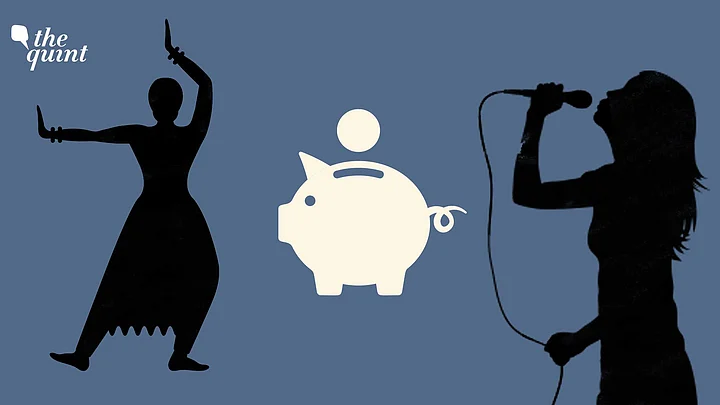The G20 2020 acknowledged for the first time the creative economy and its contribution to wellbeing and wealth creation. COVID-19 has impacted the creative economies of the world and reduced the contribution to just ‘national GDP’.
The global pandemic has precipitated many changes — even the way we all live, work and experience arts and culture. It has atomised the way we live through social distancing and work from home, and brought people closer together internationally through digital innovation and shared cultural experiences online.
What this will mean for how we all live long-term is still to be understood, but for certain, 2020 has been a landmark year.
Long-Term Impact Of Social Distancing On The Creative Economy
During COVID-19, an increased demand for digital innovation and access to arts and culture online has enabled many people to retain a sense of connection with others and an important way of understanding the world at such an uncertain and worrying period. The enduring power of the arts — to connect people for greater empathy and understanding between cultures and communities worldwide — has been in focus during the pandemic.
2020 was a year of rapid disruption and fundamental change. During this time, much of the creative sector, that lives on face-to-face audience interaction to generate income, has contracted significantly.
16 percent of the creative industries in India face permanent closure now.
The latest Taking The Temperature report (by FICCI, the Art X Company and British Council) on India’s creative economy during COVID-19 confirms that creative organisations are closing permanently to avoid bankruptcy.
90 percent of the sector fears the long-term impact of social distancing on the creative economy. Much of the creative workforce fears they will not survive beyond the next six months with diminishing financial resources and limited public funding.
How The Pandemic Has Deepened Divide Between People In Creative Industries
The third round of the Taking the Temperature report aims to put an economic estimate on the contribution of the creative sector to India’s GDP.
For all the innate innovation and adaptability of the creative economy, the pandemic has put financial sustainability of the creative industries at risk and this risks deepening the divide between people who work in it, especially the 52 percent women entrepreneurs in the creative economy in India.
Many individual creative professionals and artisans face short-term hand-to-mouth existence even as sectors adapt to digital and virtual business models to stay afloat. With 22 percent of the creative industries losing 75 percent annual income, the picture looks bleak.
India's creative economy is a crucial part of its global competitive advantage through arts and heritage. The creative economy acts as a magnet for national and international cultural tourism and positions India as a destination in the global marketplace.
During COVID-19, some state governments came forward to support the local creative economy in some measure; but the sector needs more sustained support from a wider stakeholder set. The creative economy in India is 88 percent MSME — they are the lifeblood of enterprise and livelihoods.
They will need concerted institutional support now to survive beyond the emergency of the pandemic to sustain livelihoods of many millions of artists, artisans, gig-workers and freelancers.
Without institutional investment and policy-level intervention, survival and revival of the creative economy in India looks to be extremely difficult.
What Is Needed?
In recognition that the creative sector is an integral part of the social and economic recovery plan, governments and corporates are urged to come together to strengthen the creative economy for India's international long-term competitive advantage.
The report suggests several measures. Public grants, loans and private CSR financial support should come together to strengthen the creative economy for collaborative emergency action for arts organisations freelance artists, gig workers and artisans in the short-term.
Utilising the National Culture Fund to provide grants for urban and rural traditional performers and artisans would institutionalise support for the creative sector.
The report suggests the government can also prioritise the timely disbursement of current grant-in-aid schemes for funded arts organisations.
Using current festival schemes such as the Ministry of Culture and Zonal Cultural Centres to create digital festivals and provide payments towards royalty and video, recording purposes can improve struggling cultural organisations' financial status.
Additionally, creating cultural districts in every Smart City can create a local economy for performance spaces, rehearsal venues, libraries, studios and artists offices.
During the pandemic, creative organisations and artists have shown resilience by exploring new ways of making, distributing and selling in the digital space. However, digital literacy within the sector is sparse. Establishing digital training, creative economy networks of artists, artisans and culture organisations for peer-to-peer learning and sharing resources to reduce the digital divide.
The shockwave of the pandemic has accelerated the need for collective action, peer networks, adaptation to digital technologies and long-term systematic institutional support for India's creative economy. As governments and corporates worldwide plan for economic recovery in the next year reviving the creative economy in India remains a major challenge.
(Jonathan Kennedy is Director Arts India, British Council. This is an opinion piece, and the views expressed are the author’s own. The Quint neither endorses nor is responsible for them.)
